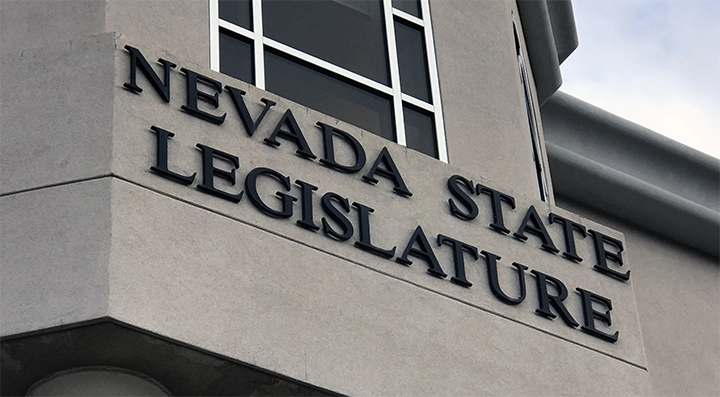On Friday, the bill passed out of the Assembly Committee on Health and Human Services, and as soon as Monday, the floor could decide on it. (Trevor Bexon/Nevada Current photo of Nevada Assembly Chambers)
Politics, policy, and liberal opinion
Assembly Bill 289, introduced by Assemblyman Max Carter, allows for the disposal of human remains using “natural organic reduction,” also known as human composting. This is accomplished by including “the contained, accelerated conversion of human remains to soil” in the state’s description of cremation.
On Friday, the bill passed out of the Assembly Committee on Health and Human Services, and as soon as Monday, the floor could decide on it.
If the proposal is passed into law, any companies that arise to provide the service in the state would be subject to regulation and oversight by the Nevada Funeral and Cemetery Services Board.
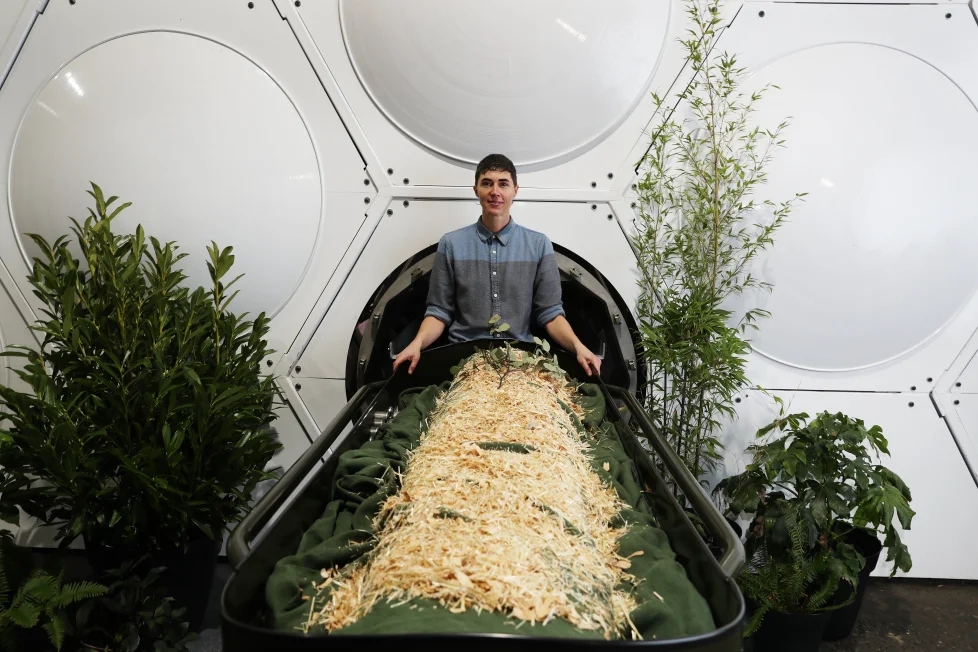
2019 saw the first person composting law passed in Washington. Following suit are Colorado, Oregon, Vermont, California, and New York. Legislation to legalize the procedure moving forward has been proposed in at least half a dozen states, including Nevada.
Carter explained to the committee that his involvement in the trauma and grief community motivated him to sponsor the measure. The assemblyman, a former electrician who now negotiates union contracts, volunteered with the Trauma Intervention Program of Southern Nevada in 2019 and is a certified trauma recovery yoga teacher.
Carter, who is in his first term, said that this procedure “might be able to bring a little bit of light in somebody’s darkest hours.” “We never know what will bring us a little piece of comfort or solace. This seems like one of those things that might be possible.
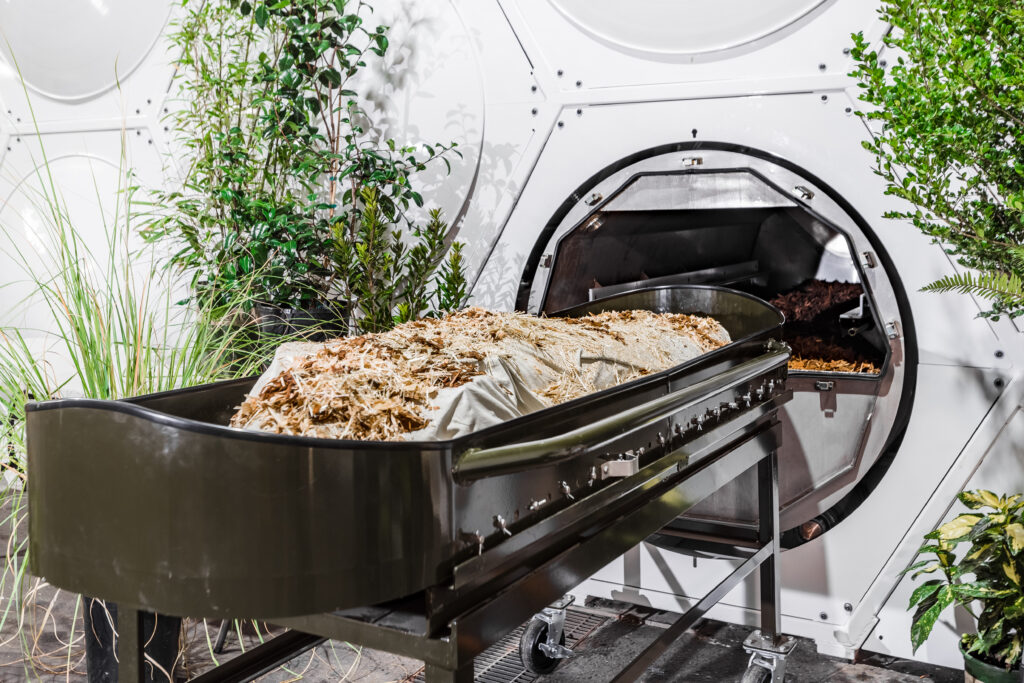
According to Tom Harries, the CEO of Earth Funeral Group, who assisted in presenting the bill, many people are open to the concept of natural organic reduction after death. Compared to burial, which uses dangerous embalming chemicals, and cremation, which typically burns fossil fuels and emits carbon dioxide, the practice is thought to be more ecologically friendly.
According to Harries, “in general, this is a matter of consumer choice.” “This method is ideal for people who want to reduce their carbon impact. For those who appreciate being outside and in nature, this process is ideal. You get back in touch with nature through a natural procedure. Additionally, a large number of people merely do not connect with burial or cremation.
Nevada has the greatest national cremation rate, with 81.6% of all human remains being cremated, according to the Cremation Association of America. In 2021, the cremation percentage across the country was 57.5%.
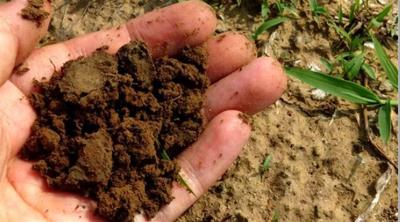
AB 289 is written widely to permit any businesses to appear, but Harries detailed the procedures involved with his company, Earth Funeral, for the Assembly committee. They have stacks of “vessels” in their “soil transformation facilities” that hold the corpse while monitoring and maintaining the ideal conditions for the microbes that break down the body. Science is used to “optimize and accelerate” nature, not pesticides or insects, according to Harries.
The average amount of time that remains are kept in the receptacle is between 30 and 45 days, after which a cubic yard of nutrient-rich soil is produced. (As for materials that are not biodegradable, such as metal implants, funerary composters handle them the same way as crematoriums.)
The family is then free to determine how much soil they need and how to use or dispose of it. According to Harries, some families choose to spread their loved one’s soil in lovely or significant locations. Some people use it to grow memorials.
The company uses any extra soil for conservation or restoration initiatives because “a cubic yard is a lot for most people,” according to Harries.
In Washington, Earth Funeral owns a piece of property on which it plants trees with the leftover soil.
According to Harries, 0.5% of human remains have been disposed of in this way in the Evergreen State since the first funerary composting company there started in 2020. He and other insiders in the sector anticipate an increase in use as more people become aware of the possibility.
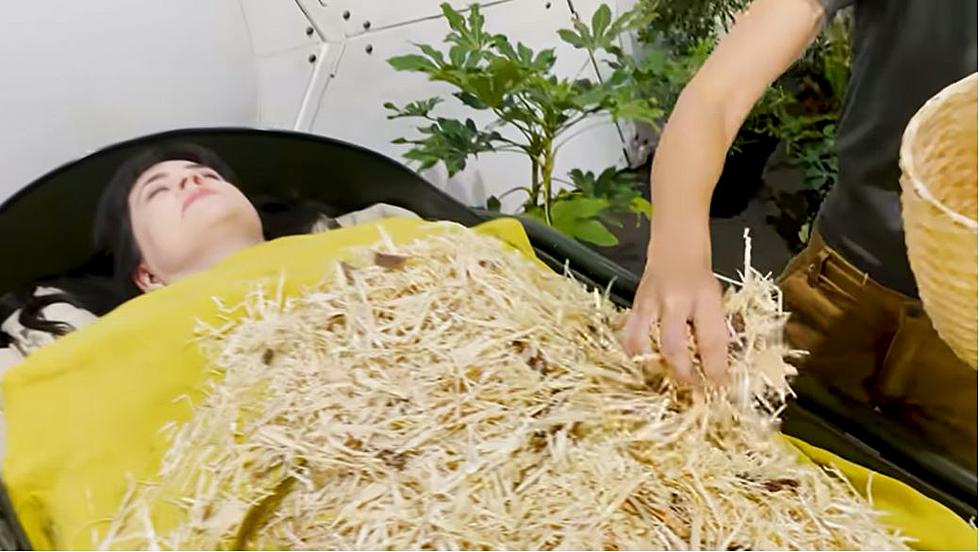
In 2020, the National Funeral Directors Association discovered that 4.1% of people would be interested, according to Harries.
He continued, “I imagine it has increased since then.” “We think people would choose it as an option if they knew,”
The article Human recycling after death may soon be legal in Nevada appeared first on Nevada Current.
Download The Radiant App To Start Watching!
Web: Watch Now
LGTV™: Download
ROKU™: Download
XBox™: Download
Samsung TV™: Download
Amazon Fire TV™: Download
Android TV™: Download

